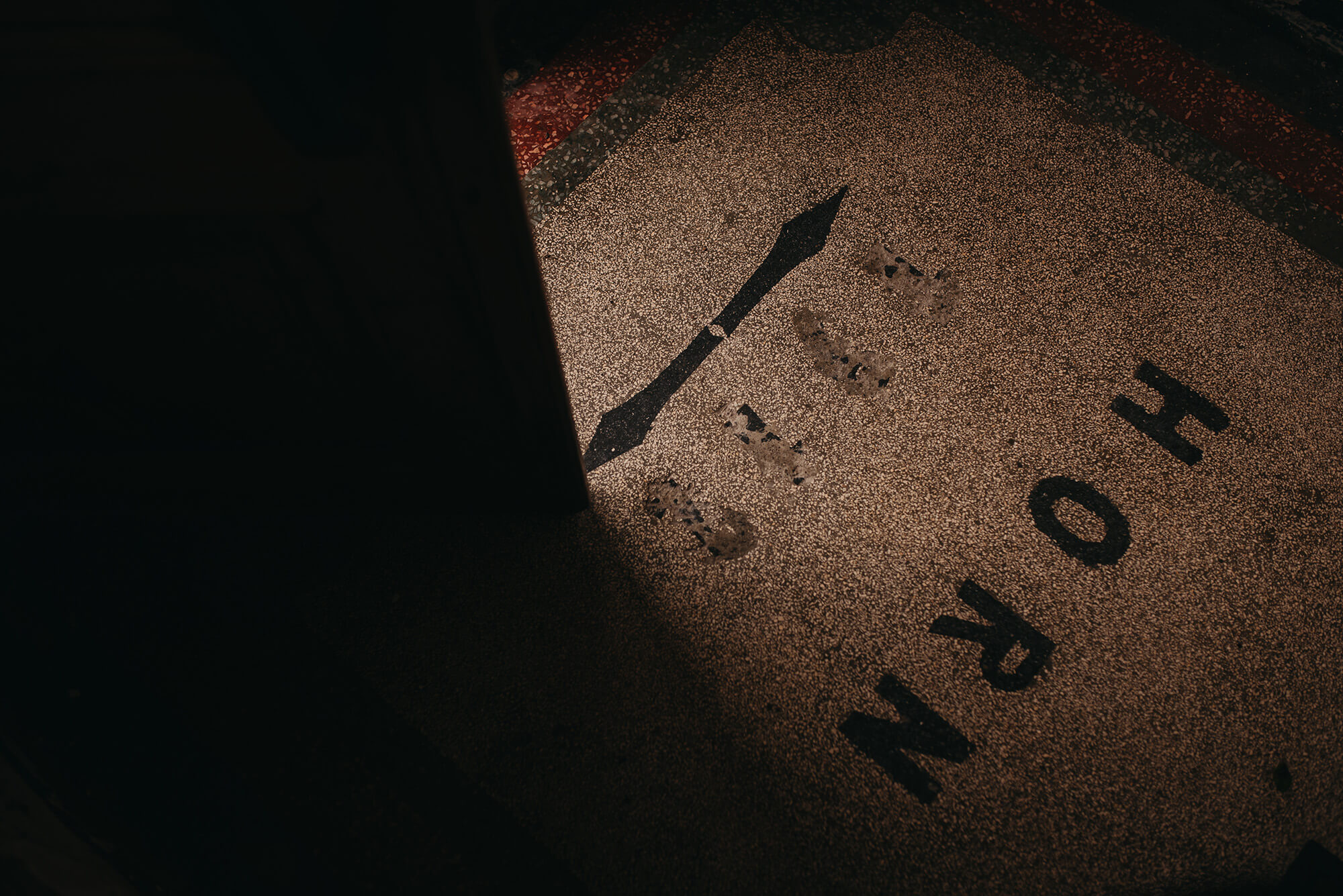
Kamienica as an Identity
Mrs. Borysyukova is 94. She is a rarity because all her life, from her very birth, she lived in a one-story villa in the central part of Ivano-Frankivsk (which, in 1932, when little Mrs. Borysyukova was born, was still called Stanisławów and was part of the Republic of Poland). The villa is timeworn, but it attracts attention all the more with its intricacy of the decor around the windows of different sizes and shapes, the massive arch above the balcony, decorative turrets, and a wooden mansard with a black cat spying out from behind the lacy yellowed curtains. In the family villa surrounded by a beautiful, neglected garden, Mrs. Borysyukova and her cat used to live with her younger brother, who died a few years ago, and a limp shepherd dog named Adolf. Adolf died shortly after the death of Mr. Borysyuk. So the woman and the cat were left alone in the house.
Around the villa, office centers are glittering with iron and glass, and green- and blue-haired people race on their electric scooters past coffee shop tables. But Mrs. Borysyukova calmly sweeps the narrow walkway in front of her villa every day, shuffling her feet in worn pantofles.
Mrs. Borysyukova is not always imperturbable. There she is, standing in front of a small shop, catching the eyes of passers-by. As soon as she finds someone willing to listen, she ramps up her indignant monologue.
“Excuse me, madam!” Mrs. Borysyukova throws up her hands angrily and goggles. “Excuse me, sir, have you ever seen such a thing?! I lived under Poles, Germans, and Soviets, and I will tell you that no one would ever allow such a thing! How’s that??” she looks around, describing an arc with her arthritis-twisted palms.
“Only big fish must be living in that tenement,” she suggests, pointing to a three-story kamienica in the style of Polish functionalism. “Sorry, but no ordinary people live there. I saw a man who entered that gate, and he must have been some boss! I lived under Poles, Germans, and Soviets, and there has never been anything like that. That sir had a dog with a blue and yellow cocarde around his neck!”
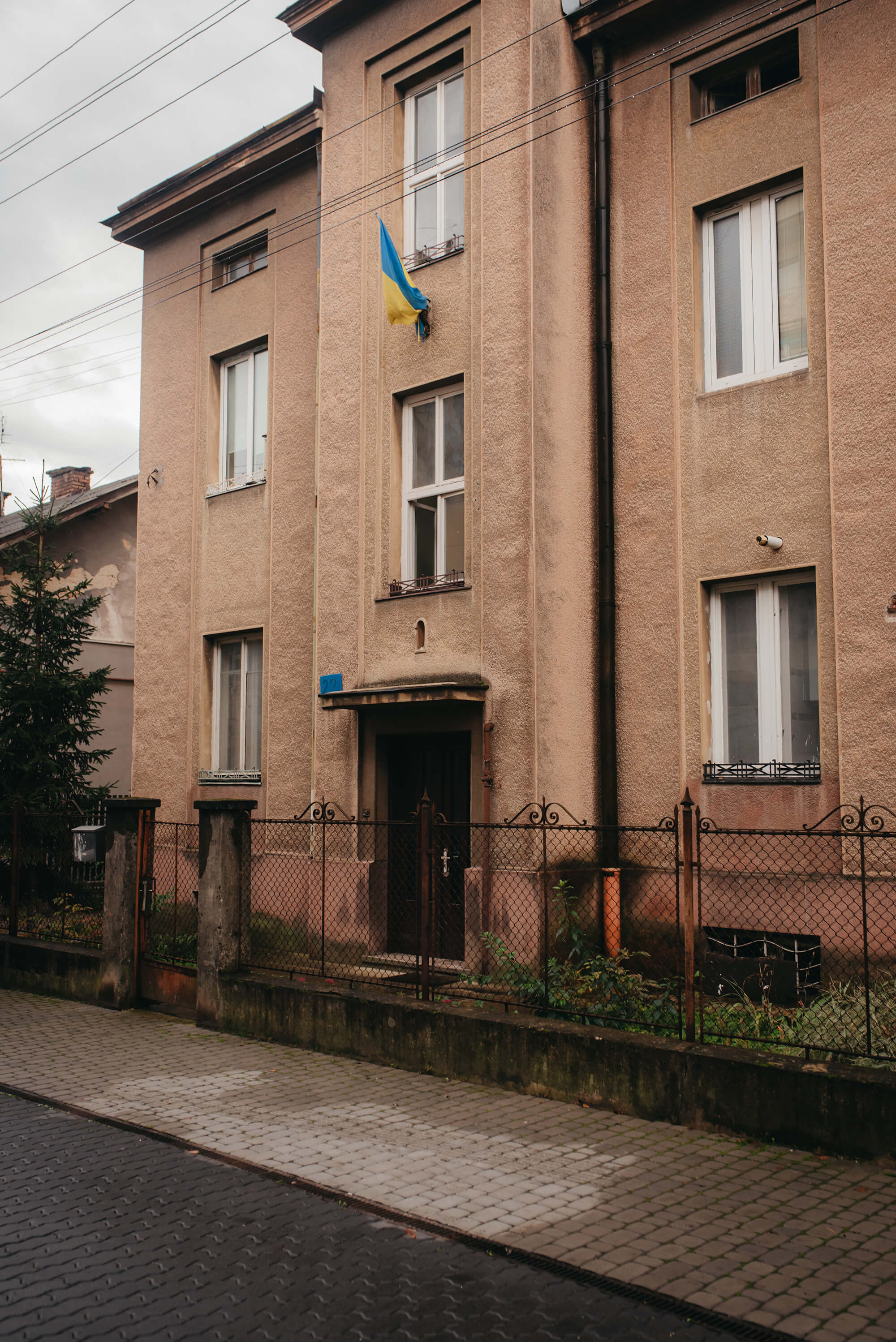
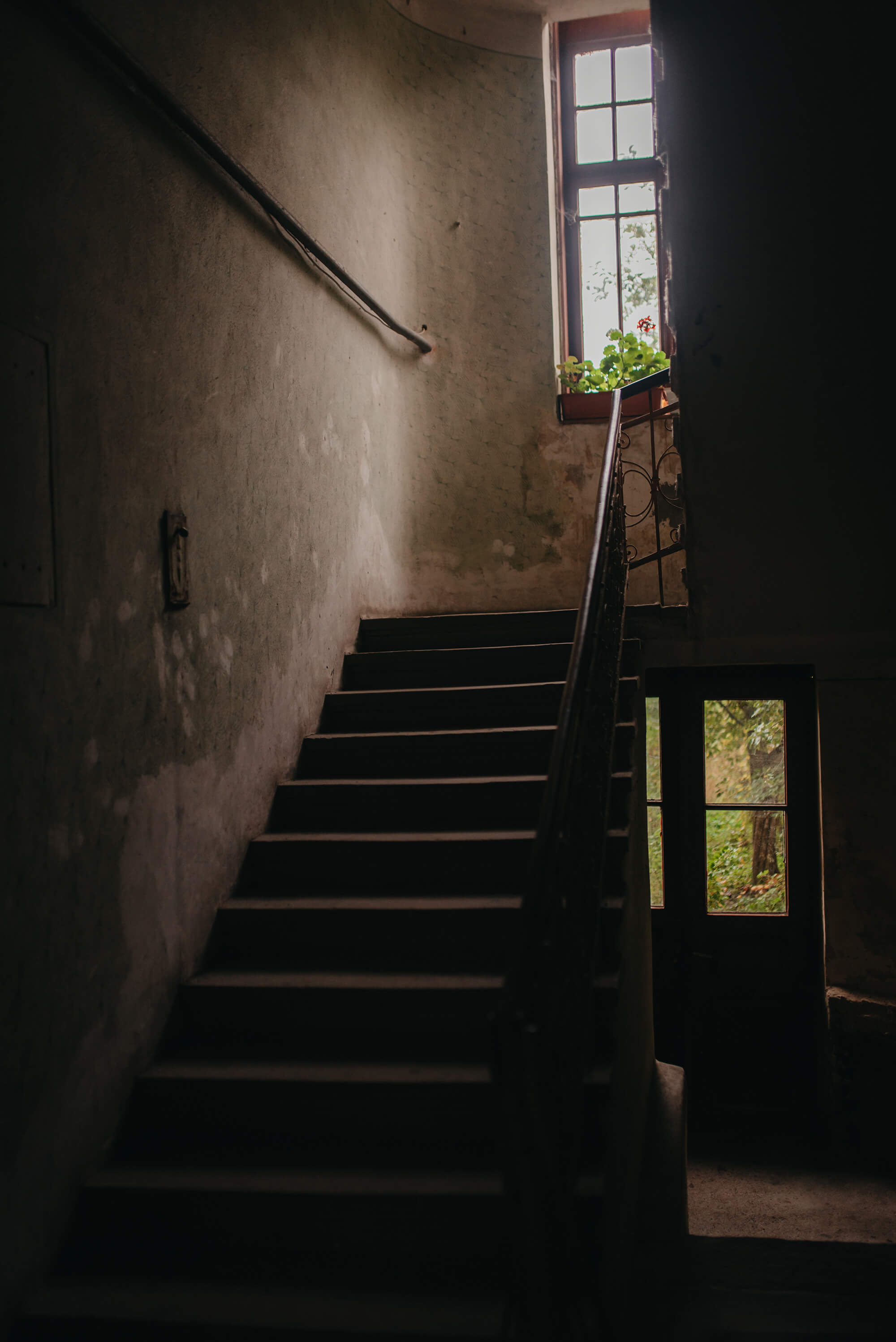
“Sorry, madam! What has it all come to? They paint fences yellow and blue, they wear yellow T-shirts and blue shirts, and now they put a blue and yellow cocarde on a dog? How’s that?? Excuse me, sir! But what would Germans have already done for that?! . . . Let alone the Soviets!”
Mrs. Borysyukova nods kindly to someone’s big dog, straining at the leash to reach her and barking furiously. “Keep barking! That’s your job. Bark at those fools. There have become an awful lot of them these days.”
After World War II, the population of Stanisławów grew by 40,000 people. Many of them were newcomers from the Socialist republics, encouraged to change their lives and participate in the development of the Ukrainian SSR. Reliable people from the Russian Soviet Federative Socialist Republic were appointed to leadership positions in strategically important industries and institutions. A thousand of these new residents were employees of the NKVD.
Many spacious, often furnished apartments in beautiful, strong tenements were left after their residents—Poles, Jews, and Ukrainians—had been deported, imprisoned, or killed during World War II. So the newly arrived specialists—personnel valuable for the Soviet authorities—had the opportunity to occupy them and consider their own.
What motivated them to travel that far, to a black hole at the edge of their universe, to the wild wild West? Some of them were probably running away from problems, avoiding punishment. Others had no choice: they were simply ordered and threatened with punishment should they disobey. Some were tempted by attractive prospects: a promotion, a higher salary, better accommodation, and other benefits promised to them. Finally, there must have also been those who agreed to leave their homes and the familiar world for ideological reasons: they really cared about the Soviet Union, believed in their destiny, and thought they were contributing to the common good.
It must have been scary and uncomfortable for them: they found themselves in foreign lands where everything was terribly different from what they were used to. Towns there had a market square and a town hall, narrow streets were cobbled, and people spoke their own utterly incomprehensible language. The newcomers considered that language a sign of the backwardness and naivety of the local folk, so trying to understand it was beneath them. They arrived as superiors, saviors, leaders, enlighteners, and masters, equipped with their own great culture to enlighten the ignorant aboriginal minds, hence it was the aborigines who, for their own good, had to understand, study and assimilate the newcomers’ language to prove their loyalty to the Soviet Motherland. It followed naturally from the hierarchy: the inferior had to make an effort and gravitate towards the customs of the superior.
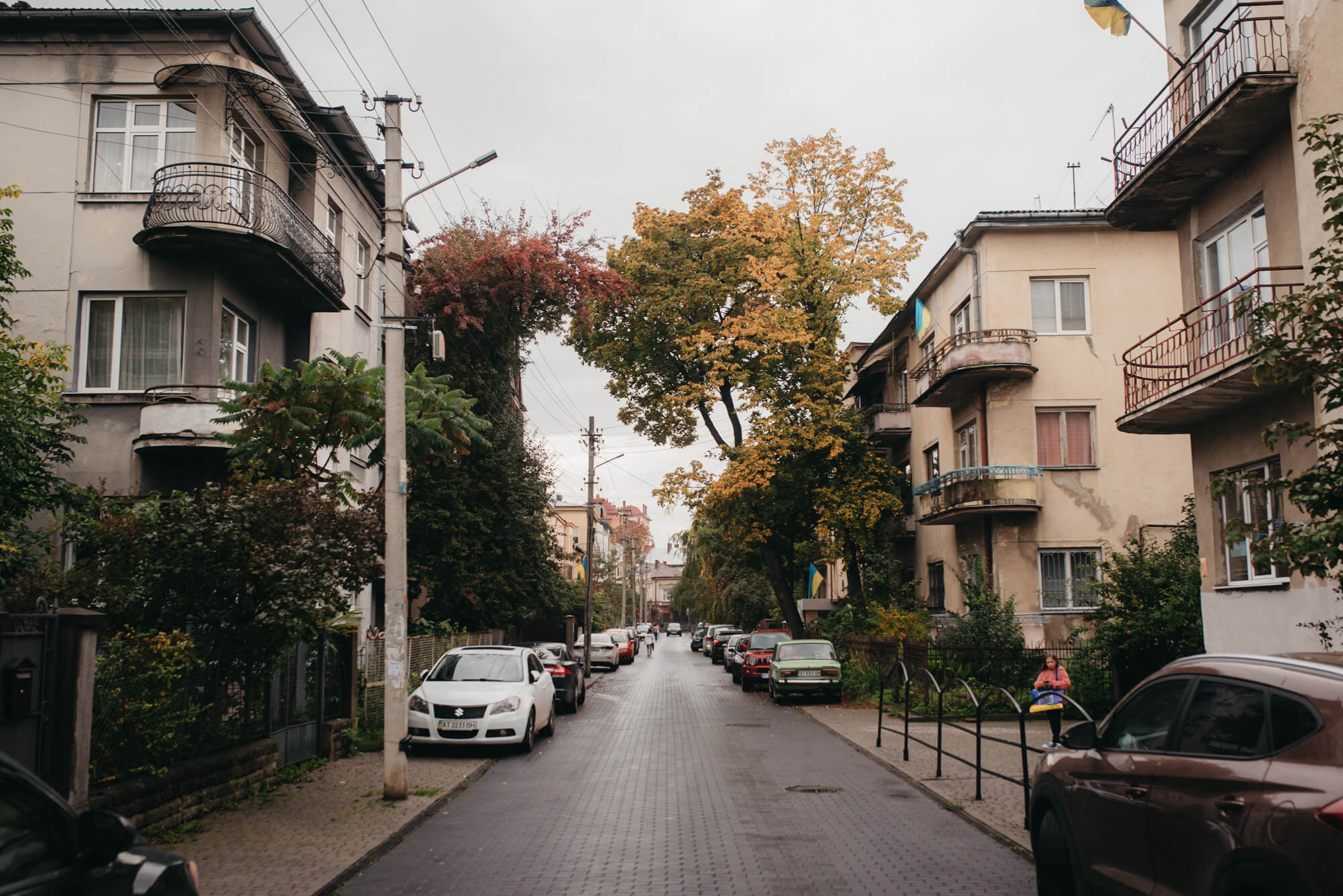
At the same time, these foreigners must have felt threatened because they were fully aware of what wasp’s nest or even snake pit they were getting themselves into. They were well-versed in the atrocities of the inhuman insurgents and were warned about the machinations of the nationalists and other enemies of the people. Probably, many of them felt like real heroes and marveled at their bravery. However, it must have been scary for them at first to fall asleep in someone else’s oak beds, on someone else’s sheets, under such unusually high four-meter ceilings, imagining an ominous figure with a carbine hiding behind the stove lined with Kosiv tiles, or someone sneaking through a squeaky gallery above the echoing well of the Italian courtyard; or hearing whispers in a strange local language on the curving stairs with squeaky railings.
In daylight, the ghosts dissolved. There was actually no real danger for the newcomers. Pillows beckoned them with softness, and life in general, with comfort. They started liking their life in this land, and even the locals seemed in many ways nice. When they were in a particularly good mood, they could learn a few phrases in the local language.
It was nice to feel superior. It was honorable and profitable to play the role of the details in the mechanism whereby these regions were merging into the body of the Soviet Union in an increasingly harmonious way. And the apartments with high ceilings, a stove, a little bureau desk, and a credenza made of dark wood felt more and more like their own, native, legitimate, and dear.
The boss-like man who took a bald Xoloitzcuintli dog for a walk, having tied a blue-and-yellow ribbon around his neck, which angered Mrs. Borysyukova, is Gena, a young, cheerful pensioner. He lives on the second floor of the kamienica, built precisely one hundred years ago in the style of Polish functionalism, in a spacious four-room apartment with high ceilings and huge windows where he was born and raised.
Gena’s grandfather, also Gennady, moved into this apartment at the end of the 1940s. It took him, his wife, and his daughter many days to travel there by train from the city of Surgut, located on the Ob River. During World War II, Gennady Sr. served in the 59th Army of the USSR and took part in the Kingisepp–Gdov offensive. His most pleasant memories were two instances when he witnessed General Korovnikov from a fairly close distance. The first time the General leaned towards his left boot, which got stuck in the mud, but Gennady Sr. could only see the General’s ear and part of the back of his head. The second time he saw the General’s face—Ivan Terentiyovych was yawning.
In the 59th Army, Gennady Sr. served as a storekeeper and must have performed his duties so skillfully that he was offered the custodian’s position in the prosecutor’s office of the small town in the west of the Ukrainian SSR.
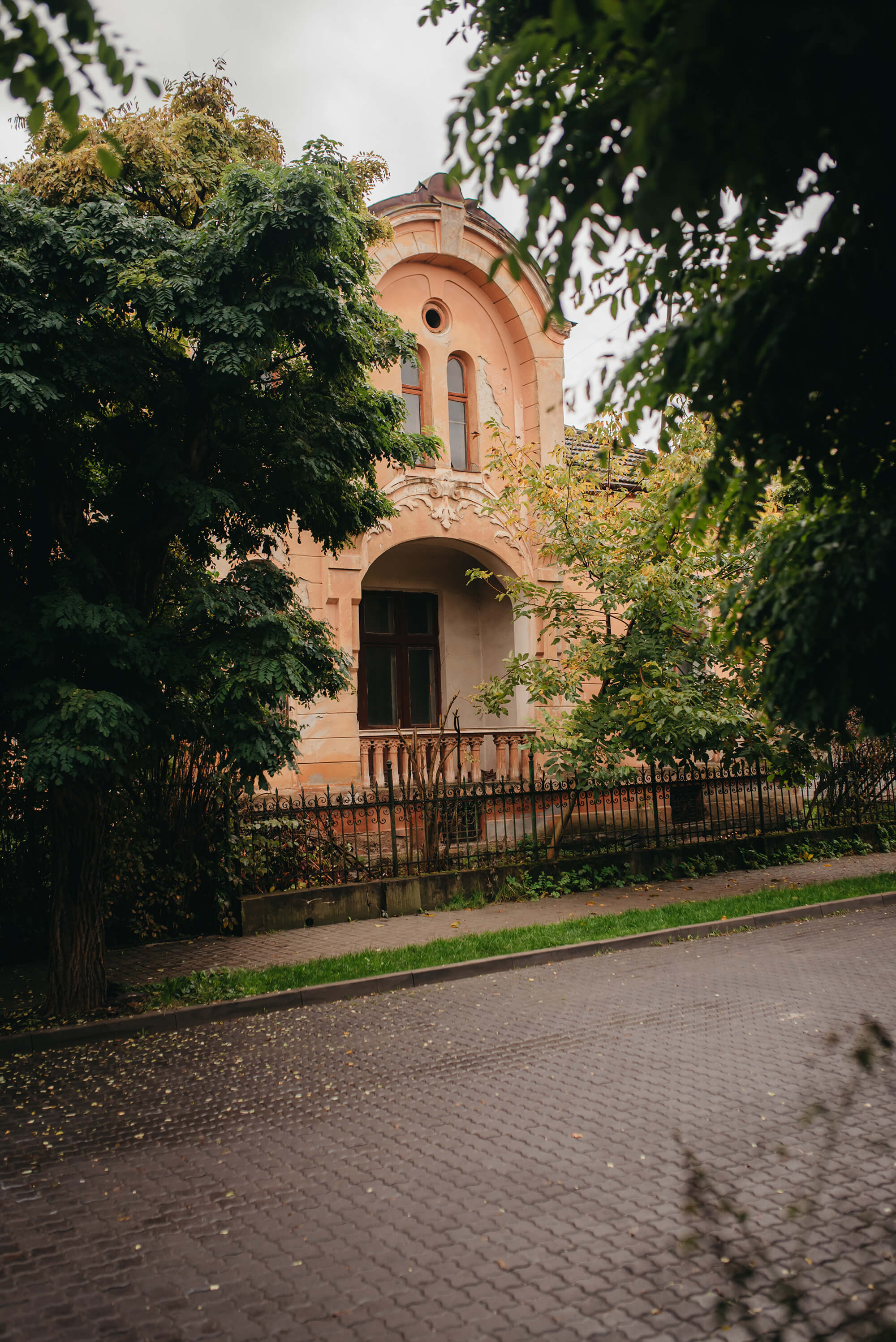

He was a sociable person and even quickly learned the names of his new neighbors from the yard, the local residents. However, the other apartments in his block were vacant. For the first few years, Gennady Sr., with his wife and daughter, lived there practically alone, apart from Blazhey, the old yard keeper from a semi-basement closet. The girl often woke up at night, screamed for a long time, and it was difficult to calm her down. She spoke of footsteps and voices and a female figure with long, loose hair leaning over her with an empty, milky-white face. Her father unsuccessfully tried to convince her that the sounds were generated by the house, while the images were a play of light, shadow, and the child’s wild imagination. In the end, the girl learned to tame her fear and not expose her parents to worry and herself—to endless walks and rides to doctors. But fear and visions never left her.
When old Blazhey died, Maria, a single mother of many children, moved from the village of Uhornyky and took over his semi-basement premises and his position. Together with her four children, they occupied a damp, dark closet almost underground. It always smelled like mold there. Сlothes, grains, and hair never dried and retained a musty odor.
Over time, her children moved out, and only the eldest daughter, Oksana, remained with her aged mother. Oksana married often and had children in each marriage. Eventually, they managed to get another room on the third floor. That room had been separated from a big apartment, so it had no kitchen, bath, or toilet. Instead, the residents had to use the facilities in the basement, going down four floors every time.
The old yard keeper Maria and the old wife of the long deceased Gennady Sr. were the only people in the entire tenement who could unlock the shared attic—a vast space full of dust and sounds, cluttered with piles of things from different eras. The rats shared it with the bats, and, on sunny days, the light penetrated through the holes in the roof, piercing the air with thin rapiers of sun rays.
The attic had a massive wrought iron door, a bit rusty but still robust. There was only one key—the size of a man’s palm, clumsy as if fashioned by some giant’s hands. The neighbors kept forgetting who borrowed it last, so there were nervous searches and dramatic investigations with accusations and reproaches every time someone needed to get into the attic.
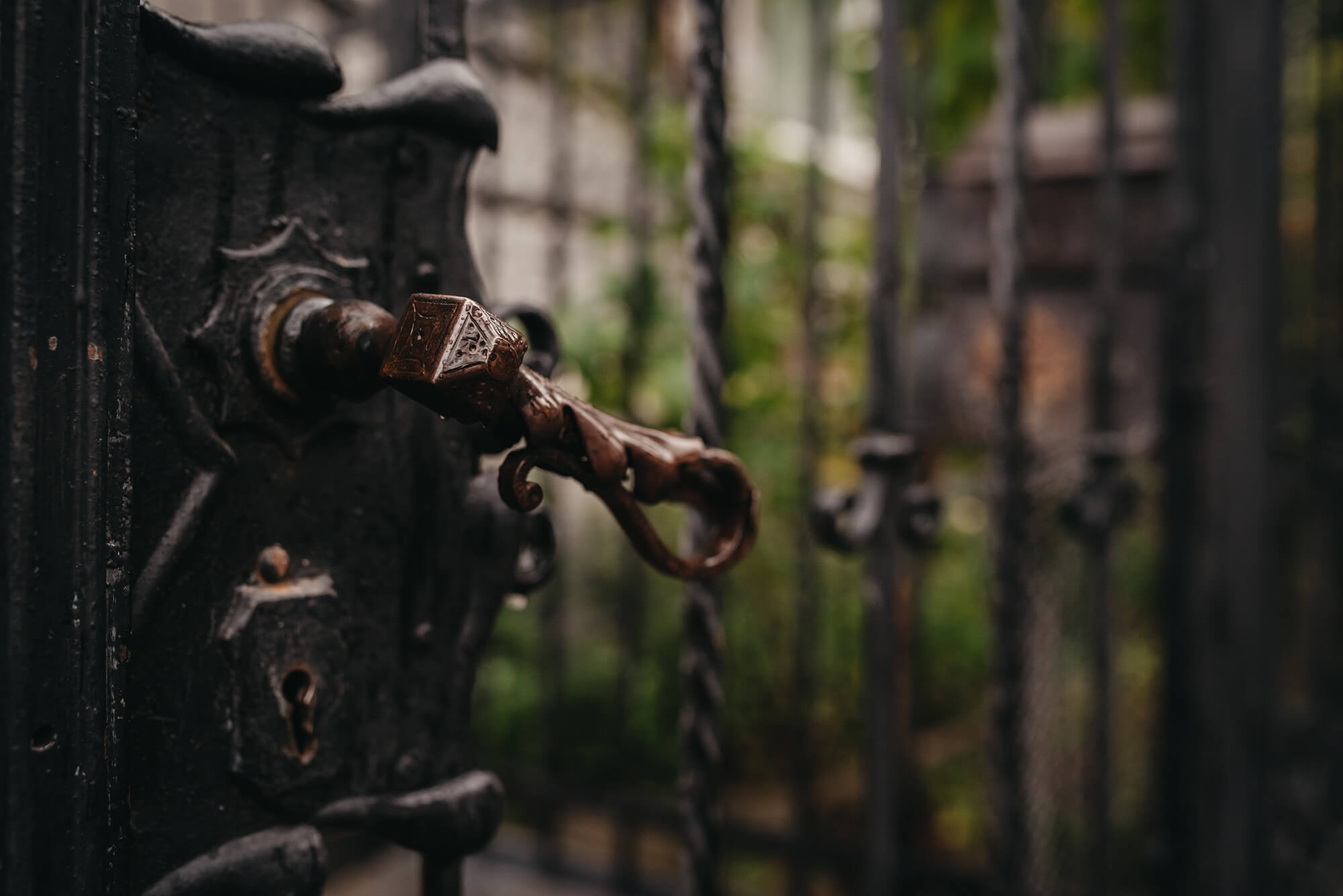
When they found the key, they still couldn’t open the door. The lock did not yield to anyone, did not respond to force, and did not reveal its secret to any hands other than the trembling and dried palms of the two old women. The ladies had to be taken out of their beds. They would carry Gennady Sr.’s wife to the top floor, giving a lengthy explanation of what was happening to her and what was being asked of her. Or they would patiently wait for two or three hours until the old yard keeper Maria finally climbed all four floors from her damp, smelly basement and unlocked the door.
When both women died, the door had to be replaced.
When, in the early 2000s, the newest neighbors tried to clean up the attic and suggested that the residents throw out their old junk, Gennady Jr. rolled his eyes: “This will not happen,” he said in Russian. “The memory of my grandfather, a Hero of the Soviet Union, and soldier of General Korovnikov’s army, is stored there. There is his library: complete works by Gorky, Sholokhov, Fadeyev, and his beloved Borodin! You don’t mean to say that I should throw away the books, do you? It is literature! It is history!”
Since childhood, Gena has known Ukrainian well. He studied at a Russian school, but the life around him was still Ukrainian-speaking, and it was impossible to get away from it. In a way, it was convenient: Gena could slide between the two languages depending on the situation. He could speak Russian to show superiority over his peers (usually, when at least one child in the yard spoke Russian, ten Ukrainian-speaking kids switched to it as well). Or he could speak Ukrainian to avoid attracting attention on the street or in a store or win a librarian’s affection. Or to annoy his father and dissociate from him.
He used the same logic, albeit not always consciously, in his adult life. You could get closer to someone you needed or liked by switching to their language. Conversely, you could put someone unwelcome in their place, even humiliate them, by emphasizing that they spoke a different language.
Gena married a local girl, the couple had sons, and the boys spent a lot of time with their grandmother in a village near Frankivsk. After returning home, they annoyed their father for a while by speaking in a peculiar village dialect. Very soon, already in their teens, they started doing it on purpose—just as Gena did in his time.
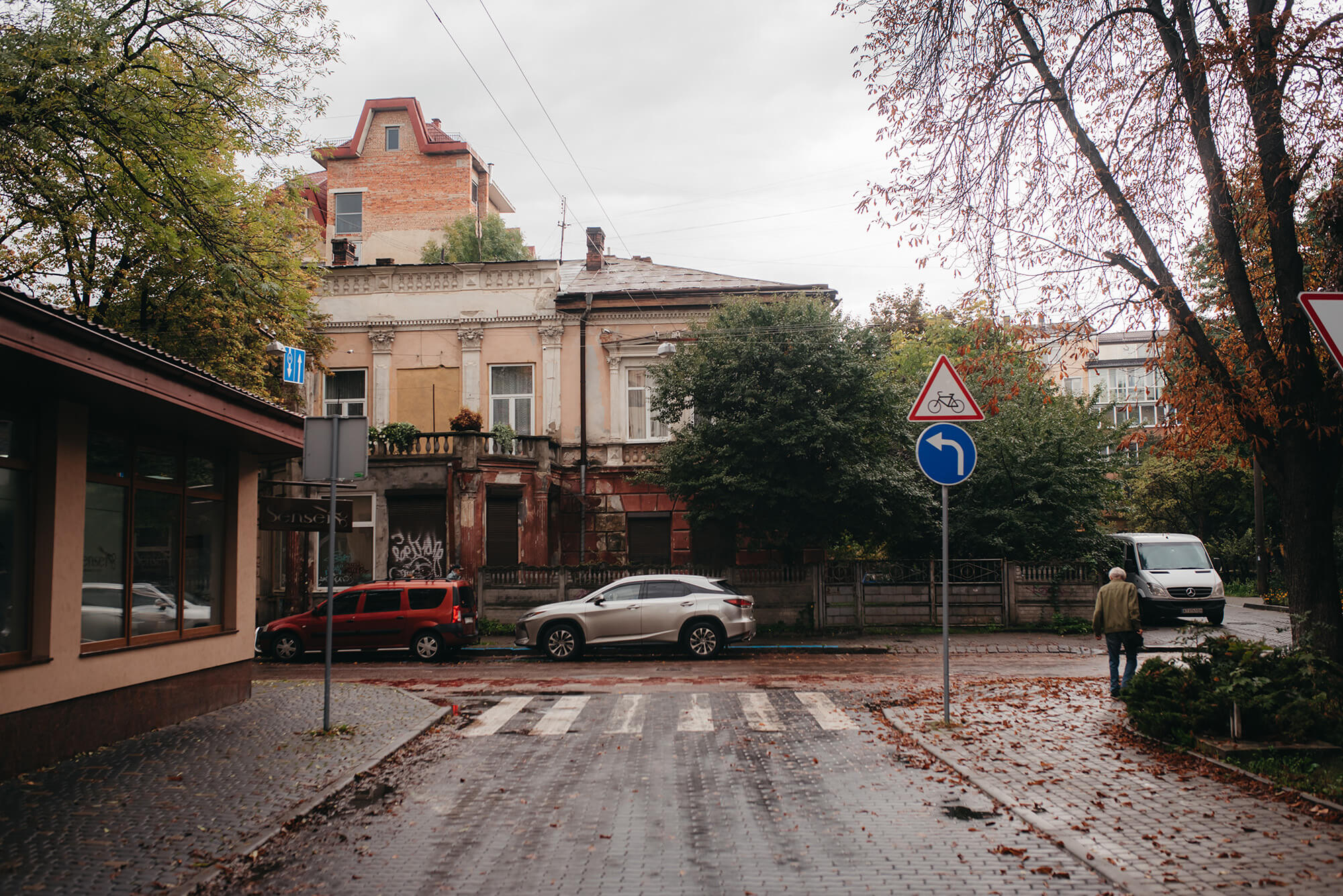
The only difference was that Gena eventually switched to Russian again with his father. His old man never said a word of Ukrainian. Gena spoke Ukrainian with his sons more and more often—so often that they lost this way of rebellion.
To what extent could Gena, who was born in Ivano-Frankivsk and spent his entire life in its very heart, feel like a stranger there? To what extent was this strangeness pleasant and profitable, and to what extent was it uncomfortable? Did he consider himself, at least sometimes, a descendant of those who arrived here to secure the obedience of the local population and suppress their desire to be themselves? Did he ever feel guilty about his grandfather? How much loneliness and chosenness was there in this feeling of strangeness? How has this feeling changed over time, and what happened to the desire to become a part of this place, to feel at home here?
The stories and features of those whose fate is similar to Gena’s are, of course, vastly different. Some forever renounced their “liberator” ancestors, making every effort to fit into the environment as organically as possible. Others continued to nurture their alienation and superiority, reveling in nostalgia for the lost Soviet world and waiting for its return.
Gena chose to slide.
A very old man, perhaps the age of the long-deceased Gennady Sr., still strolls opposite Gena’s house. He is withered almost to the bone, and the skin on his face has thinned and yellowed, all covered with spots of decay. The old man invariably dresses in a military uniform. He is pressed to the ground by the weight of a dozen Soviet medals. He smells of rot and infirmity, which drives all the local dogs mad, including Gennady Jr.’s black Xoloitskuintli. The dog is choking with rage, rushing at the old man. He does not react, struggling to make every step. What keeps him in this world, it seems, is a mystical faith—in the return of the empire.
“Aren’t you dead yet?” Gennady Jr. mutters in Ukrainian, gently petting his dog with a blue and yellow cocarde which infuriated Mrs. Borysyukova so much.
After 2014, many new residents arrived in Ivano-Frankivsk again. They were Ukrainians fleeing the Russian war in Donbas. They walked the streets, photographed tenements and villas, and went to restaurants. Many of them bought apartments and stayed. As a result, there has become much more Russian language in the city.
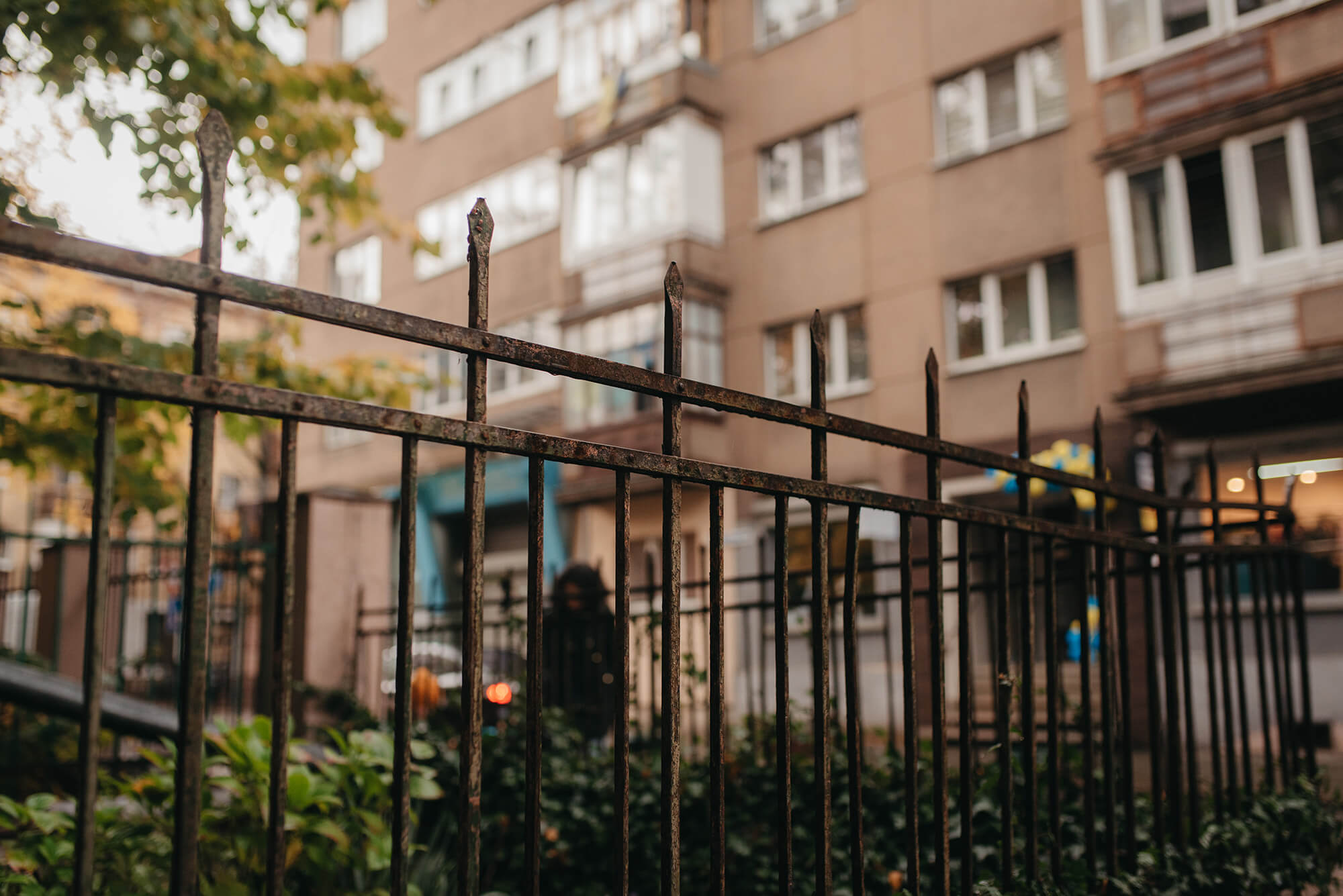
“I don’t like it,” Gena Jr. told his neighbors. “How do I know who they are and why they are nosing around here? Yesterday, a whole bunch of them came to our yard and admired the plants on the balconies. What if they removed the copper latches from the doors? Or screwed the railings off?”
So Gena ordered a wrought iron gate in the Vienna Secession style to protect the courtyard entrance.
What makes someone who slides between the manifestations of identity lean more towards one of the markers and dissociate from another? How does one’s heritage transform into an alien marker? What is home—a place or a language, a matter of memory and heritage or a matter of choice? And how does the place where you cherish your superior foreignness begin to feel like your native and welcome harbor with the arrival of foreigners who speak your native tongue?
What should have become a drama cozily turned into well-being. Gena’s grandparents once arrived in unknown foreign lands to integrate them into their empire. Their grandson appreciates the place where he was born precisely for the reasons that make it non-empire, for all its unique features. His motivations are down-to-earth and practical; he likes his way of living and environment, and it is comfortable and convenient for him here. But Gennady does not like that the empire his relatives once used to drag here is advancing from the east again, threatening to disrupt his well-established rhythm of life.
People who fled to the west of Ukraine from the war in the east were fleeing from murderers who spoke the same language and came on the pretense of its protection.
“Speak the state language, please,” Gena Jr. remarks to someone in a shop near his house. “For you are in Ukraine.”
In his essay Beyond Guilt and Atonement, Jean Améry recounts a terrifying situation that reflects the horror and tragedy of a person whose homeland has been taken away and whose native language, where from comes one of the main cores of identity, has become deadly.
As a member of the Belgian Resistance, Jean Améry looked after the printing of leaflets. The printing presses were in the apartment of some Belgian woman. The lady warned that German officers were living in the same building, but Améry’s friends decided that this circumstance was playing right into their hands: no one would ever guess to look for the rebels there.
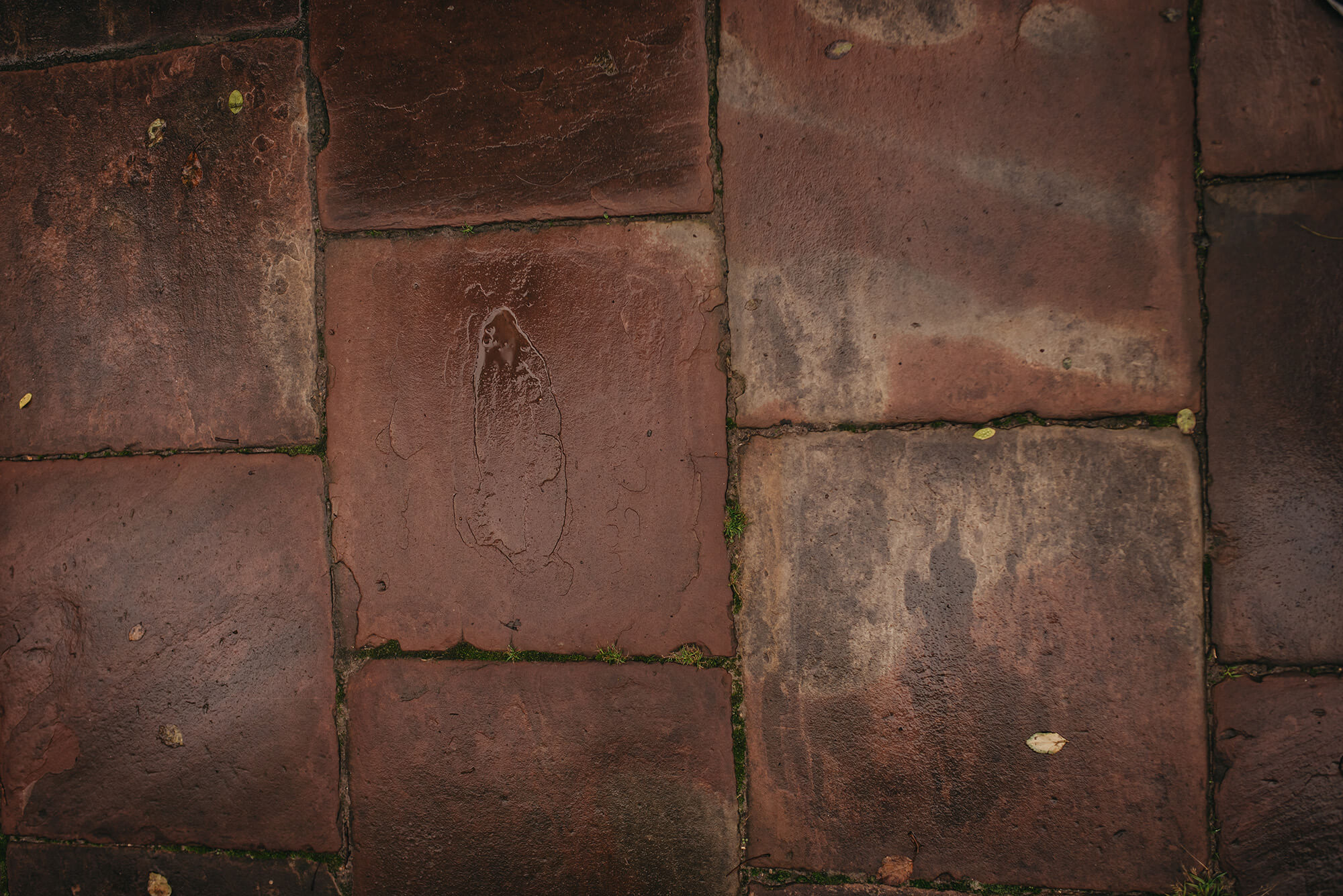
One day, Jean Améry and his friends recklessly made too much noise and woke up an SS man trying to make up for a sleepless night. Infuriated, he came to scold his restless neighbors. Améry, who had already realized all the danger of the situation, opened the door in horror. He was sure they would all be arrested.
But it never dawned upon the officer to enter the room with the presses next door. Instead, he remained in the hall, venting his fury on Améry.
A powerful mixture of opposite emotions deeply moved the author: the SS officer spoke the same dialect also native to Jean Améry himself—that is, Hanns Chaim Mayer, who spent his childhood in the Austrian Alps, in the town of Hohenems.
The way that Austrian spoke emanated the safety of a tiny town where everyone knows everyone, the mother’s voice, the most reliable shelter and approval. But for Améry, the speaker of that dialect embodied banishment and denial of his existence and was called to torture and ultimately destroy his townsman.
By some miracle, Améry resisted the temptation to unite with his uninvited guest by replying in the same dialect. The urge was terribly strong and tempting: the desire to throw oneself into the arms of someone close, to hide in the native element. That day, the rebels were not exposed. But that experience became one of the incurable wounds of the writer and philosopher who was stripped of the most basic foundations of existence, while all the origins of his personality turned out to be manipulated and posed a deadly threat.
A friend from Poland, a Ukrainian-to-Polish translator, told me a story about a Ukrainian taxi driver who once took him around Poznań. In 2016, that man left his village in the Luhansk region and moved to Poland. Touched by his client’s command of Ukrainian, he started talking about his life and then suddenly shared an experience he regularly encountered in this Polish city. When his Polish passengers learned that the man was from Ukraine, they would often ask him what he thought about the Volyn tragedy.
“To be honest,” the Ukrainian taxi driver admitted to the Polish translator, “I didn’t know anything about it then. In fact, I had never heard of it before. But I noticed that for Poles, it was a painful subject. They were astonished and could not believe I was unaware of such an important historical event.”
In 2016, a movie called Wołyń, directed by Wojciech Smarzowski, was released in Poland and rubbed salt in the wound again. At the time, many Ukrainians, especially from the country’s east, had never heard of the Volyn tragedy.
Intrigued, the Ukrainian taxi driver began to research the subject. He searched for information, compared Ukrainian and Polish sources, and came to his own conclusions. At some point, he began to answer the questions of his Polish clients. What was completely unknown to him, a matter of someone else’s history which he had no idea about, had turned into his personal issue, a part of his new life as a Ukrainian emigrant in Poland. Having just left Ukraine, this man realized he was involved in its history. He felt guilt, shame, sadness, and horror. He tried to figure out how something like that could have happened. In the end, having survived the attack of the Russian army on his native land, he truly felt the other people’s tragedy.
His identity emerged from the loss of his home. From a distance, he felt a part of the country he was forced to leave—in a much broader sense than he could have imagined.
At the end of February, when Russia started its war in Ukraine, Gena Jr. suddenly started repairs. He hired a crew of workers, simple country boys, and quickly got on the right side of them by effectively sliding from Russian to Ukrainian, depending on what tone of influence he needed.
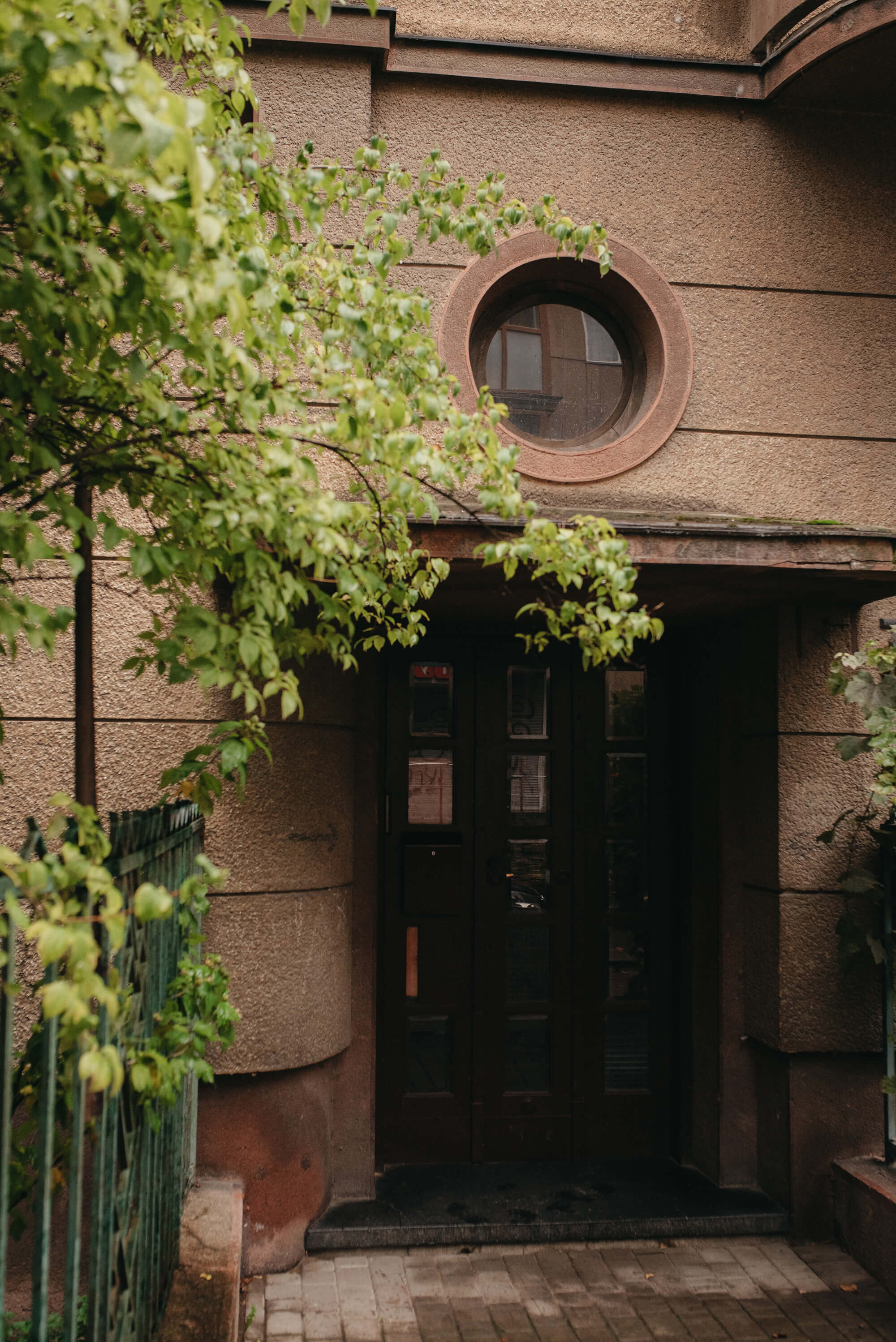

His wife had recently begun to earn good money from her hobby: she sewed dolls dressed in traditional costumes of different regions of Ukraine, and her craftwork became popular among foreign collectors. She even had to hire several seamstresses to help with the orders. Gena converted part of the basement for them, deepening and widening it, removing excess moisture, fungus, and mold. By chance, the workers discovered a dangerous crack under the foundation of the building. Gena consulted with specialists and eliminated the danger, so the kamienica and all its inhabitants were saved.
After that, he set about renovating the entrance, keeping a close watch on the preservation of the decorative elements, the restoration of the old window frames, and the correct polishing of the railings and latches.
“What a circus!” protested dental technician Yoshka, indignant at the meticulousness of the renovations. Yoshka moved to Frankivsk from Khust ten years ago. His one-room apartment next door to Gena’s, unkempt and permeated with the aromas of a lonely cowboy’s life, seemed even more neglected in contrast to the snow-white and solemn entrance. “But it is a corridor!” he shouted, refusing to pay his share.
Finally, Gena Jr. got to the attic. He hung the massive old key in a prominent place by the door like a talisman. Having folded his hands on his stomach, he stood there and silently watched as the workers took out the books from the library of Gennady Sr.—Hero of the Soviet Union and a soldier of General Korovnikov’s army—and put them in the trunk of the car.
And then he went for a walk with his dog—the one with a blue and yellow cockard around his neck. They did not meet Mrs. Borysyukova that time.
Have read to the end! What's next?
Next is a small request.
Building media in Ukraine is not an easy task. It requires special experience, knowledge and special resources. Literary reportage is also one of the most expensive genres of journalism. That's why we need your support.
We have no investors or "friendly politicians" - we’ve always been independent. The only dependence we would like to have is dependence on educated and caring readers. We invite you to support us on Patreon, so we could create more valuable things with your help.
Reports130
More






